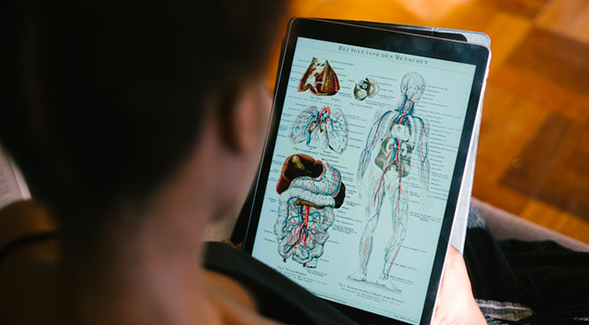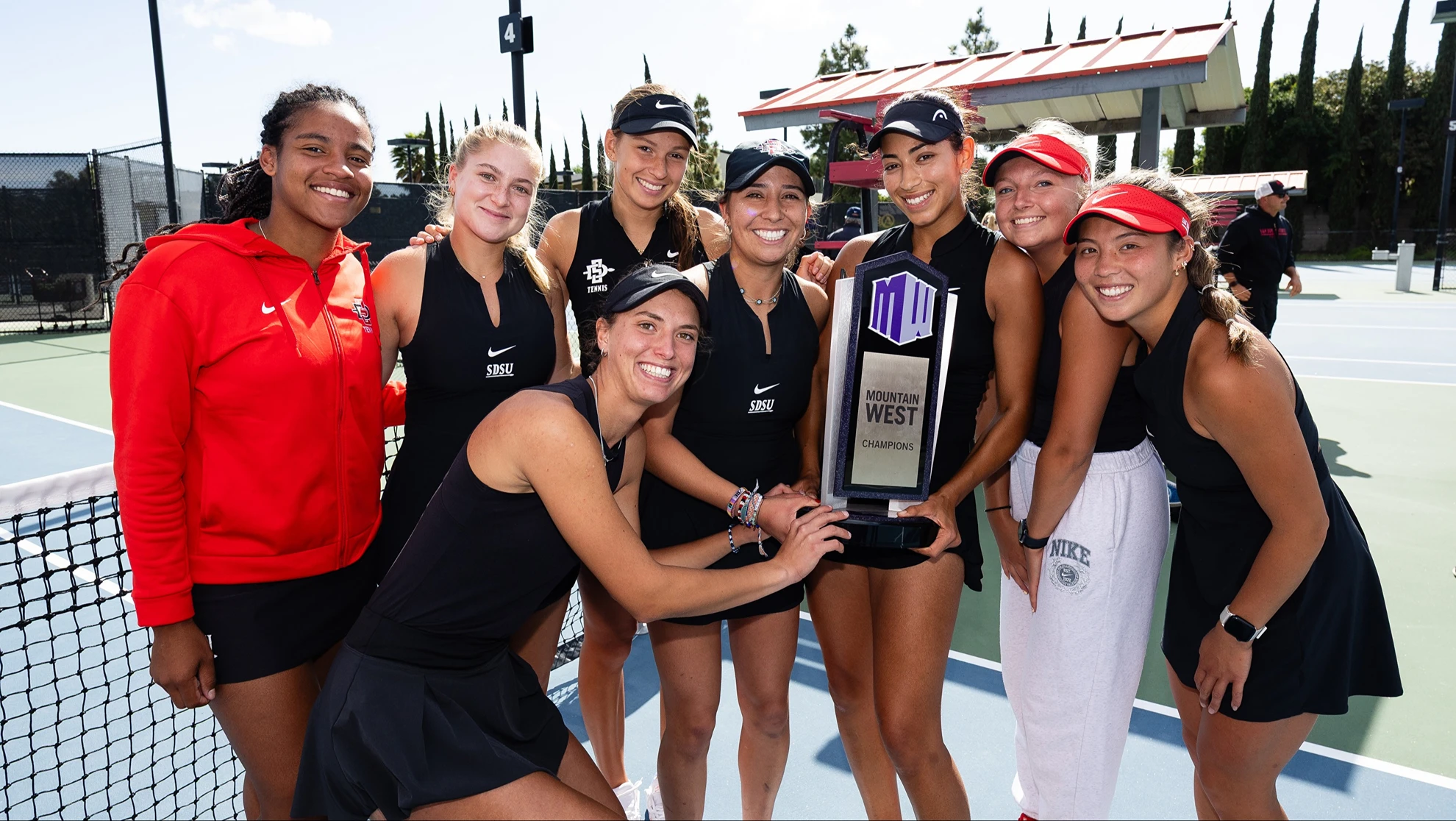Honorees Named for Classroom Adaptations, Innovations
Seven SDSU instructors received the Faculty Forward Award for exceptional teaching solutions during the pandemic.

Seven San Diego State University instructors have been honored with the Faculty Forward Awards and recognized for demonstrating exceptional agility and dedication in transitioning courses to virtual formats during the pandemic.
The awards, created in spring 2020 by the Center for Teaching and Learning, Faculty Advancement and Student Success and Instructional Technology Services, honor the dedication and innovation of SDSU faculty during the university’s shift to virtual instruction.
“During this pandemic, SDSU faculty have demonstrated authentic concern for students and dedication to learning—these award winners are shining examples of the best in our profession,” said Joanna Brooks, Associate Vice President for Faculty Advancement and Student Success.
The awards are open to all tenured and tenure-track faculty and graduate instructors. Winners were selected by a faculty committee led by Center for Teaching and Learning Director Sarah Elkind. This year’s recipients are:
Reza Akhavian
College of Engineering
Akhavian, an assistant professor in the Department of Civil, Construction, and Environmental Engineering, addressed equity gaps in engineering classes by reducing the cost of course materials. Akhavian redesigned courses around peer-to-peer instruction. He also changed his strategy for teaching students to use simplified software and also demonstrations with a combination of brief presentations and extended hands-on sessions during which small teams shared screens, answered each others’ questions and met with him. These innovations helped to reduce students’ stress and eliminate many technical problems they experienced. It also gave Akhavian an opportunity to work more closely with his students.
Victor Clark Alfaro
College of Arts and Letters
A Latin American Studies lecturer, Alfaro has for many years taught an experiential course that introduced students to the structural inequalities that shape the lives of vulnerable populations in Tijuana. The course, in its face-to-face form, provided students who could not otherwise study abroad with a rich, immersive international experience, featuring guest lectures in offices and private homes. This year, however, Clark had to pivot this study-abroad experience online. His roster of guest speakers included community leaders from Indigenous neighborhoods, leaders of the street vendors’ and sex workers’ unions, and recent deportees, as well as public health workers and members of Tijuana city government.
Laura (Katie) Turner
College of Professional Studies and Fine Arts Amanda Lee
College of Health and Human Services Adrianne Kenney
College of Health and Human Services
When the pandemic closed theaters and shifted instruction online, theater students could no longer enter into acting internships, and social work students could not complete required counselling practicums. Turner, a lecturer in the School of Theatre, Television, and Film, collaborated with Lee and Kenney, both lecturers in the School of Social Work. Acting students took on the personas and case histories of patients in live, simulated counseling sessions for social work students. The project allowed dozens of social work students to apply their coursework, while giving theater students acting practice. To create additional internships for theater students, Turner also created a Theatre, Television, and Film Archive Team and instructed them in methods to preserve evidence of ephemeral work, and record the impact of the pandemic on the campus community. Turner, Lee, and Kenney developed a model cross-college collaboration that built on the wealth of resources and creativity at SDSU.
Nicole Mathwich
College of Arts and Letters
Mathwich, an assistant professor, in the Department of Anthropology, adapted to online teaching with the help of a rotisserie chicken. Mathwich teaches archaeology lab classes that introduce students to osteological anatomy, analysis of historic tools and food remains, data analysis and other archaeology lab methods. With the labs closed, Mathwich had to develop assignments using readily accessible materials. This is where the chicken comes in: it provided a readily available source of muscles and bones for the study of animal anatomy. Next came an experimental archaeology project: students made and tested slingshots, campfire cooking, and historical desserts from the 1700s. Mathwich supplemented these immersive, hands-on activities with high-resolution, 3D-modeled scans of bones, and also inaugurated a bilingual, digital research project using zooarchaeological data from Mission Dolores de Cosari in Sonora, Mexico, which students will co-author.
Jenny Wong-Welch
SDSU Library
Wong-Welch says a library is a portal for discovery, knowledge and empowerment; it is a portal that works because librarians create channels of exploration and community-building. When the pandemic resulted in the SDSU restricting campus access due to health- and safety-related compliance needs, students lost access to a physical, community hub. Librarian Wong-Welch turned to social media, creating a new Instagram campaign to humanize librarians, connect with students, and share digital images and other materials to initiate critical discussion of and critical thinking about current events, including Black Lives Matter and COVID-19. The project succeeded beyond her expectations, leading to more authentic and inclusive conversations, promoting visual literacy, and creating an online community where people felt connected and informed during a time of isolation.
“Throughout the pandemic period, our faculty instructors have been both resilient and innovative in their commitment to give our students the best possible education despite conditions outside of our control,” said SDSU Provost and Senior Vice President Salvador Hector Ochoa.
“Our faculty members have identified ways to actively engage students in research, to create more meaningful connections with their students and to create live and meaningful activities and programming,” Ochoa said. “For these reasons, and other ways they have gone beyond for our students, they are each deserving of our appreciation.”



